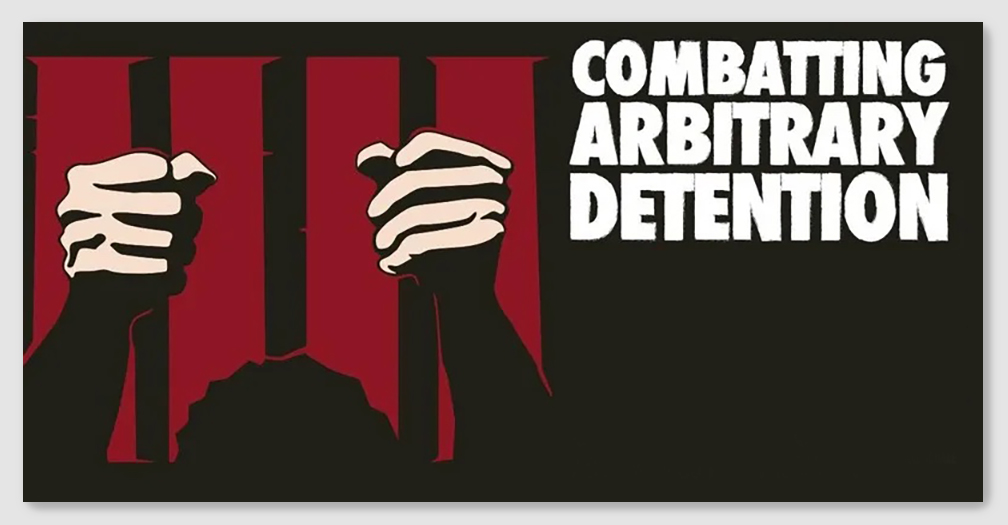We post news and comment on federal criminal justice issues, focused primarily on trial and post-conviction matters, legislative initiatives, and sentencing issues.

DOJ PROPOSES RULE TO GIVE BOP DISCRETION ON ORDERING CARES ACT HOME CONFINEES TO RETURN TO PRISON
 Almost everyone was relieved last December when the Dept of Justice’s Office of Legal Counsel rescinded its Trump-era opinion that people on CARES Act home confinement would not have to return to prison when the COVID-19 emergency ends.
Almost everyone was relieved last December when the Dept of Justice’s Office of Legal Counsel rescinded its Trump-era opinion that people on CARES Act home confinement would not have to return to prison when the COVID-19 emergency ends.
Unfortunately, there was an “easter egg” in that opinion. In a statement that accompanied release of the opinion, Attorney General Merrick Garland said DOJ would issue rules to ensure that those “who in the interests of justice should be given an opportunity to continue transitioning back to society, are not unnecessarily returned to prison.”
At the time, Ohio State Univ law professor Doug Berman said in his Sentencing Law and Policy blog, “I am not sure how that rulemaking process will work, but I am sure the AG statement is hinting (or flat-out saying) that there will still be some in the ‘home confinement cohort’ who may need to worry about eventually heading back to federal prison.”
Last week, the chickens started coming home, but not precisely as the AG suggested. In a Notice Of Proposed Rulemaking (NPRM), the DOJ proposed that after the COVID-19 national emergency ends, the BOP Director would have delegated authority to let “any prisoner placed in home confinement under the CARES Act who is not yet otherwise eligible for home confinement under separate statutory authority to remain in home confinement under the CARES Act for the remainder of her sentence, as the Director determines appropriate.”
 So far, so good. The problem, however, is that the NPRM does not propose the criteria the BOP should use to decide who stays home and who returns. Instead, the NPRM promises that “following the issuance of a final rule, the Bureau will develop, in consultation with the Department, guidance to explain criteria that it will use to make individualized determinations as to whether any inmate placed in home confinement under the CARES Act should be returned to secure custody.”
So far, so good. The problem, however, is that the NPRM does not propose the criteria the BOP should use to decide who stays home and who returns. Instead, the NPRM promises that “following the issuance of a final rule, the Bureau will develop, in consultation with the Department, guidance to explain criteria that it will use to make individualized determinations as to whether any inmate placed in home confinement under the CARES Act should be returned to secure custody.”
The devil’s in the details; here, DOJ has apparently decided that the criteria for keeping folks at home will remain opaque to public comment and judicial review. For anyone who lived through the moving targets that were the original CARES Act home confinement criteria in the early days of COVID, this suggests a continuation of an arbitrary and confusing system for returning home confinement people to prison.
The good news is that DOJ – noting that over 4,900 inmates had been placed in home confinement under the CARES Act, with 2,826 of them having release dates over 12 months away – said it intended that CARES Act placement will “for the duration of the covered emergency period.”
 When will the COVID-19 emergency end? Walter Pavlo said last week that while no one knows for sure, “one can bet that it will not be before the mid-term elections in November and could likely extend through another COVID-19/flu season of 2023.” Given that 55% of all national emergencies declared in the last century are still in effect (including six over 25 years old), the end of the COVID-19 emergency probably will not come soon.
When will the COVID-19 emergency end? Walter Pavlo said last week that while no one knows for sure, “one can bet that it will not be before the mid-term elections in November and could likely extend through another COVID-19/flu season of 2023.” Given that 55% of all national emergencies declared in the last century are still in effect (including six over 25 years old), the end of the COVID-19 emergency probably will not come soon.
Meanwhile, a bit of irony: We reported on May 11th about a lawsuit in Connecticut challenging the removal of an inmate from CARES Act home confinement without a hearing. The government has moved to dismiss the habeas corpus action. A hearing on the dismissal motion set for June 15 was postponed because the government’s attorney was too ill with COVID to attend.
DOJ, Discretion to Continue the Home-Confinement Placements of Federal Prisoners After the COVID-19 Emergency (December 21, 2021)
Sentencing Law and Policy, New OLC opinion memo concluding CARES Act “grants BOP discretion to permit prisoners in extended home confinement to remain there” (December 21, 2021)
DOJ, Statement by Attorney General Merrick B. Garland (December 21, 2021)
DOJ, Home Confinement Under the Coronavirus Aid, Relief, and Economic Security (CARES) Act, 87 FR 36787 (June 21, 2022)
Forbes, Department of Justice Proposes Final Rule to End CARES Act for Home Confinement for Federal Prisoners (June 25, 2022)
Order (ECF 27), Tompkins v. Pullen, Case No 3:22cv339 (D.Conn)
– Thomas L. Root

